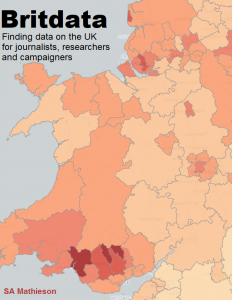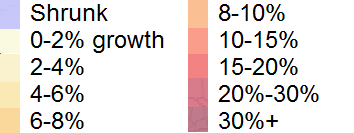Labour was hoping that yesterday’s local elections would see it unseating the Conservatives in the London borough of Wandsworth, held by the Conservatives since 1978, along with perhaps Kensington and Chelsea and the City of Westminster. But the Conservatives have held all three.
For my data journalism e-book Britdata I worked out that one-tenth of the UK’s total gross value added economic output is generated in the workplaces in Scotland, Northern Ireland and Northumberland. The same proportion is generated by the workplaces of just five London council areas: Camden, City of London, Lambeth, Tower Hamlets and City of Westminster. Continue reading “Why ‘soak the rich’ might not be the way to win Wandsworth”

 If I have a data journalism specialist subject, it is Britain. Writing about its public sector means finding out how to extract information on it through Freedom of Information, parliamentary written answers and open data on spending; knowing how to use official published data on Britain’s localities; and understanding the often-messy structure of local public services including councils, police, fire and NHS organisations.
If I have a data journalism specialist subject, it is Britain. Writing about its public sector means finding out how to extract information on it through Freedom of Information, parliamentary written answers and open data on spending; knowing how to use official published data on Britain’s localities; and understanding the often-messy structure of local public services including councils, police, fire and NHS organisations.
